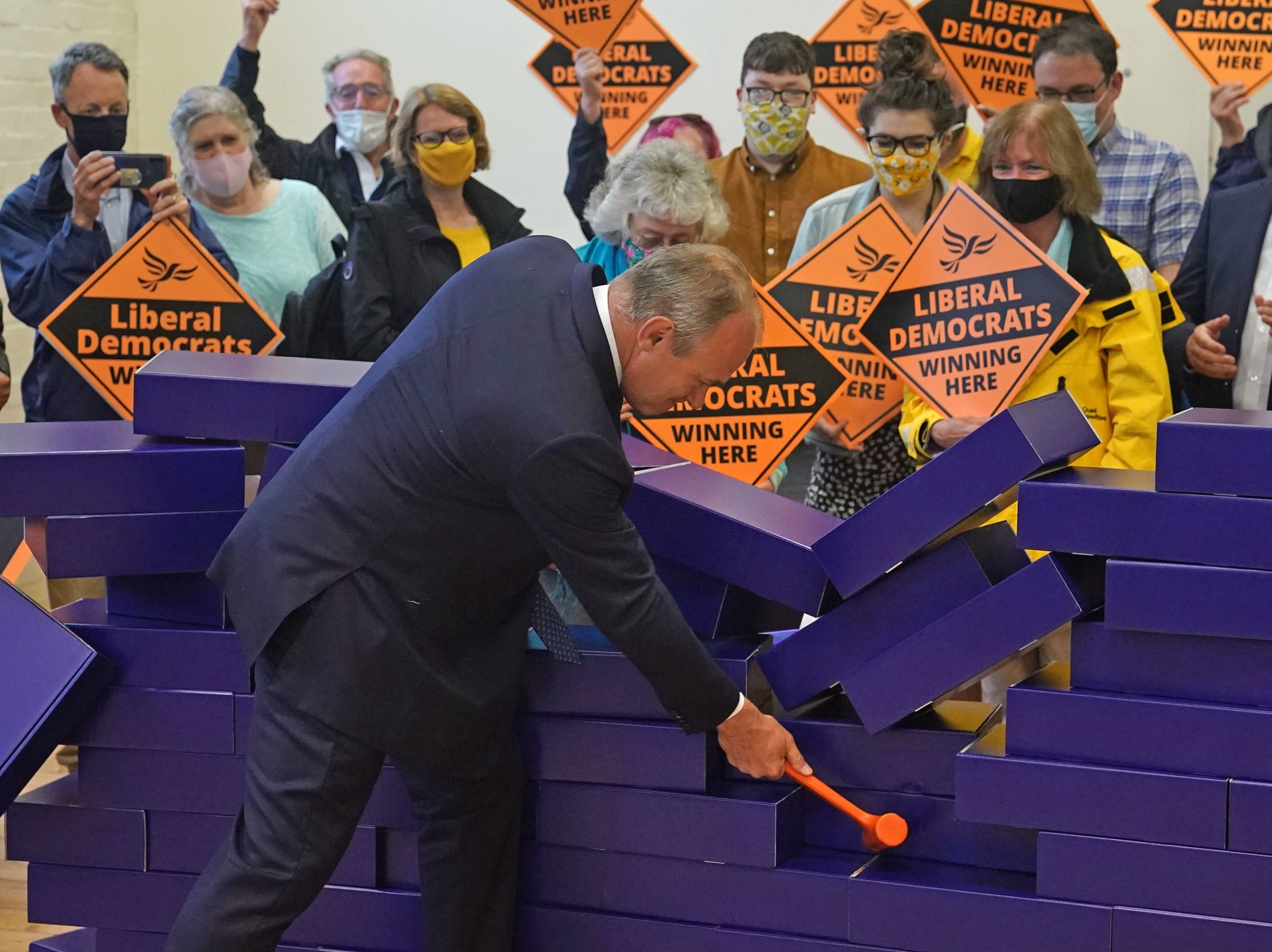Mapped: Tactical voting targets dozens of ‘blue wall’ councils
Exclusive: Research shows there are 39 Tory-held councils in the South where the left-leaning vote outstrips the vote for right-wing parties
Your support helps us to tell the story
From reproductive rights to climate change to Big Tech, The Independent is on the ground when the story is developing. Whether it's investigating the financials of Elon Musk's pro-Trump PAC or producing our latest documentary, 'The A Word', which shines a light on the American women fighting for reproductive rights, we know how important it is to parse out the facts from the messaging.
At such a critical moment in US history, we need reporters on the ground. Your donation allows us to keep sending journalists to speak to both sides of the story.
The Independent is trusted by Americans across the entire political spectrum. And unlike many other quality news outlets, we choose not to lock Americans out of our reporting and analysis with paywalls. We believe quality journalism should be available to everyone, paid for by those who can afford it.
Your support makes all the difference.Campaigners calling for tactical voting in the forthcoming local elections have revealed the “blue wall” councils in the South of England where the strategy could overturn a Conservative majority.
Rishi Sunak’s party is braced to lose around 1,000 council seats at England’s May elections – but experts think tactical voting could make the results even worse for the Tories.
Research by the campaign group Compass – shared with The Independent – shows there are 39 councils in blue wall areas in which the Tories won overall control with less than 50 per cent of the vote.
The centre-left group has dubbed these areas “tragedy” councils, referring to the fact that a Tory candidate triumphed despite the total number of votes for left-wing parties being higher than the number for right-wing parties.
The group has highlighted where left-leaning voters will have the best chance of defeating the Tories in their local area – with most of the key marginal councils being in the leafy home counties of the South East.
Canterbury, Ashford, Harlow, East Hampshire, West Berkshire, Mid Sussex, East Hertfordshire, Basildon and Braintree are among the key marginals where tactical voting by Labour, Liberal Democrat and Green voters could change who has control of the local authority.
Compass said it “dispels the myth” of the safe Tory council in the affluent South, as the Tories often only win majorities in their so-called heartlands because the progressive vote is split.
“We have a multi-party system hiding in plain sight of a first-past-the-post system, which breeds frustration – people don’t feel represented,” said Frances Foley, the group’s deputy director.
“But there are signs in the last few years that tactical voting is necessary,” she added. “I think you’re going to see it at the local elections this year, and in a big way at the general election. We’re pointing out that the Tories are weaker in places you wouldn’t expect.”
Local groups have produced tactical voting recommendations, giving ward-by-ward guidance on who voters should back if they wish to replace the Tories with progressive councillors.
Compass said its local groups are also having discussions with Labour, Lib Dem and Green organisers ahead of the local elections – and the forthcoming general election – aimed to reach agreements on shifting campaign resources to whichever candidate is best placed to win.
“Progressives are getting wilier, getting more organised, and they’re also getting more trusting of each other,” said Ms Foley. “Cooperation is happening at a local level – but a lot of it is under the radar, because the national parties still want to be seen running in absolutely every seat.”

Elections expert Professor Sir John Curtice thinks there was evidence of an increase in anti-Tory tactical voting at last year’s local elections and recent by-elections, arguing that it is a worrying sign for Mr Sunak’s party.
“The crucial question is how big a factor tactical voting is,” he told The Independent. “If it happens [in a big way], then the Tory party could lose well over 1,000 seats in May.”
Compass has called on Labour and the Lib Dems to be more “honest” about swapping target seat information and shifting resources at elections.

“You’ll get people saying it’s back-door deals in smoke-filled rooms – but the Tories did it to their advantage with the Brexit Party in 2019,” Ms Foley said. “We’re saying, let’s get smarter about getting more progressives elected, and realise we need to change the voting system.”
Compass – which supports proportional representation – has warned that Sir Keir Starmer and Sir Ed Davey may have to work with each other if Labour’s national poll lead is cut and a hung parliament becomes a possibility at the general election.
A YouGov survey carried out at the end of last year showed that 63 per cent of the public believed Labour’s big lead was mainly about anger against the Tory government. Only 11 per cent thought it was based on support for the Labour Party.
More than half of the 64 marginal “tragedy” councils across England are in the South East, South West and in the east of England, leaving Tory heartland areas highly vulnerable to tactical voting on 4 May.
Graham Simpson, coordinator of Compass’s local group in Canterbury, said 60 per cent of people in the area voted for left-leaning parties at the last local election – but because the vote was split, the Tories won an outright majority on the council.
“You just need to look at the numbers to see there’s a clear progressive majority in Canterbury and much of Kent,” he said. “If we can mobilise that vote and get the message out, we should win here easily.”





Join our commenting forum
Join thought-provoking conversations, follow other Independent readers and see their replies
Comments